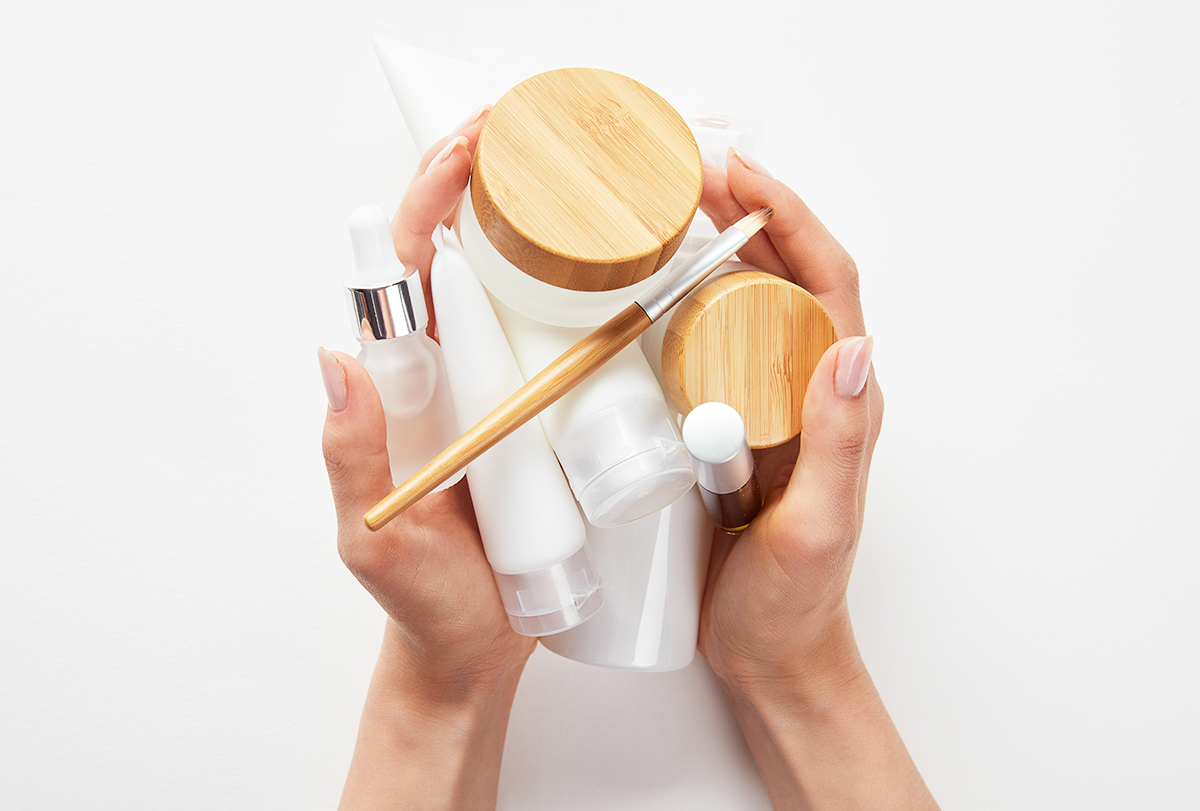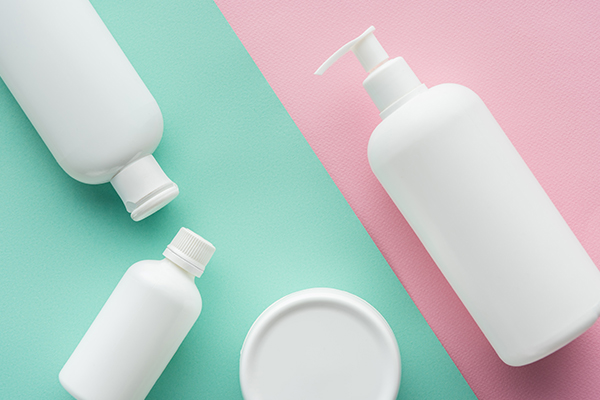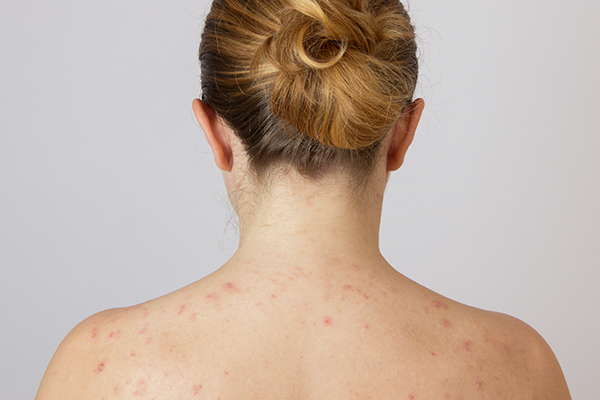In this article:
Acne is a common skin problem that occurs in the form of lesion outbreaks on the skin. Acne can affect any part of the body, such as the face and shoulders. (1)

Acne generally develops due to the clogging of skin pores or hair follicles with dirt, dead skin cells, and oil. The blocked pores then act as breeding grounds for acne-causing bacteria.
Moreover, you may be predisposed to acne outbreaks due to hereditary factors that can affect your body’s immune response against Propionibacterium acnes, a common acne-causing bacterium. (2)
Shoulder acne is more common in men and is often indicative of skin sensitivity, poor hygiene, or stress. The good thing is small lifestyle changes can improve the condition and prevent outbreaks, which will be discussed in this article.
Lifestyle Changes to Manage Shoulder Acne
Acne forms due to the clogging of pores and compromised skin health, both of which can occur as a result of multiple factors. Therefore, it is vital to take good care of your skin internally and externally.
The following lifestyle tips are helpful in the management of acne breakouts and lower their frequency:
a. Modify your skin care routine

Good skin care is key to maintaining optimum skin health and condition. Include the following steps in your skin care routine to keep skin problems such as shoulder acne at bay:
1. Cleanse gently
Use a mild body wash or cleanser every day when showering to remove the dust, dirt, and oil on your skin and prevent them from settling in your pores. Make sure to use lukewarm or cold water.
Avoid showering in hot water as it can strip the skin of its natural oils, making it dry, eventually increasing sebum production and therefore the risk of acne.
2. Exfoliate weekly
Exfoliating your skin one to two times a week using a gentle chemical or physical exfoliant can remove skin debris and also increase skin cell turnover. It lowers the chances of acne formation.
However, avoid exfoliating daily and using harsh exfoliators as these can damage the skin.
3. Moisturize daily
Optimum skin moisture is essential to strengthening your skin’s protective barrier, preventing the entry or action of acne-causing bacteria and irritants.
It is advised to moisturize your skin after a shower, while it is still slightly damp, using a light moisturizer, to lock in the hydration. Do not use heavy lotion as it can make your skin oily and can clog the pores.
4. Use sunscreen
Apply sunscreen on your shoulders before stepping out in the sun, especially when wearing dresses that expose your shoulders, since the UV rays can damage your skin.
5. Take a shower after sweating

Take a shower after any sweat-producing activity such as exercising to prevent the accumulation of sweat and oil in the pores. Make sure to wash your hair, back, and shoulders properly.
6. Avoid waxing
Waxing your skin during an acne breakout, or even otherwise, can irritate the skin and cause inflammation.
Moreover, since waxing pulls the hair from the roots and removes the top layer of skin cells, it exposes your skin pores, increasing the chances of an acne flare-up due to irritants or sensitivity.
b. Keep your bedding clean
Your blanket, pillowcases, or bedsheets may accumulate grime, oil, sebum, and dead skin cells over time. To avoid transferring these back to your skin, make sure to clean your bedding periodically and wash it using warm water and detergent.
c. Improve your diet

What you eat reflects on your skin. That is why consuming a well-balanced, nutritious diet is important to your skin health.
It is suggested to consume low-glycemic foods such as legumes, whole grains, and high-carb fresh fruits and vegetables. In addition, include anti-inflammatory and antioxidant foods containing zinc, vitamin A, and vitamin E in your diet.
Tips to Prevent Shoulder Acne
Shoulder acne can be easily prevented with a few self-care measures, such as:
- Wearing suitable clothes: It is best to wear loose-fitting clothes, especially when exercising. Opt for clothes made of sweat-wicking fabrics such as cotton. Avoid using bleach to wash your clothes as it can irritate the skin and aggravate acne. Instead, use fabric softeners to avoid friction from clothes.
- Reducing pressure on the shoulders: Avoid the use of backpacks or shoulder pads that can put undue pressure on your shoulders and rub against them, causing acne.
- Avoiding irritating skin care products: Identify the products your skin is sensitive to and avoid their use. These products include soaps and body gels that contain artificial fragrances that irritate the skin.
Can Shoulder Acne Clear Up on Its Own?

Similar to other forms of acne, shoulder acne can resolve on its own, provided that the skin is taken care of and aggravating factors are avoided.
However, it is still best to seek acne treatments for quicker recovery. Depending on the treatment, it may take 4–6 weeks for your acne to clear up.
Final Word
Acne on the shoulders is a common problem and rarely a serious medical concern. It can easily be treated with over-the-counter or prescription medications.
However, it is equally important to take good care of your skin. A good skin care routine also helps prevent the formation of acne in the first place. If the acne doesn’t clear despite proper care, is painful, or spreads, consult your doctor.

- Was this article helpful?
- YES, THANKS!NOT REALLY


